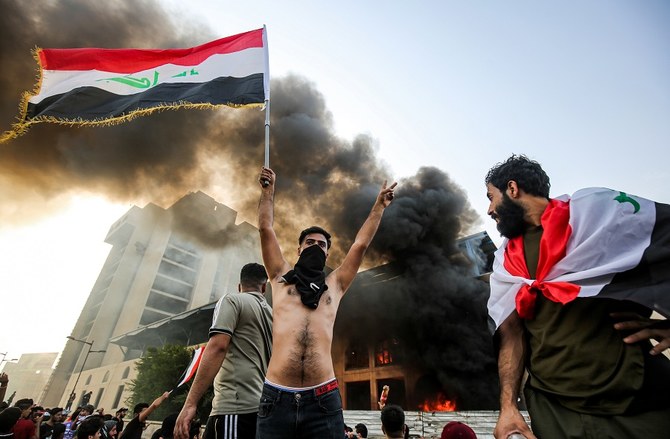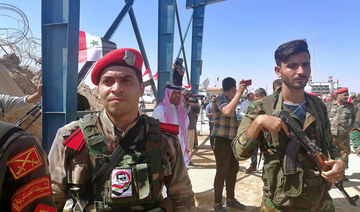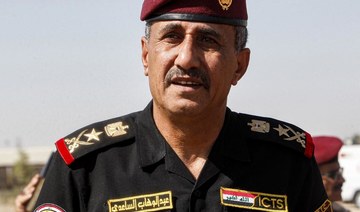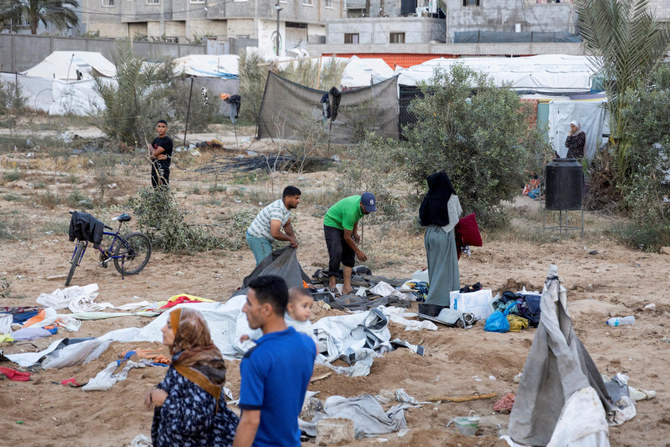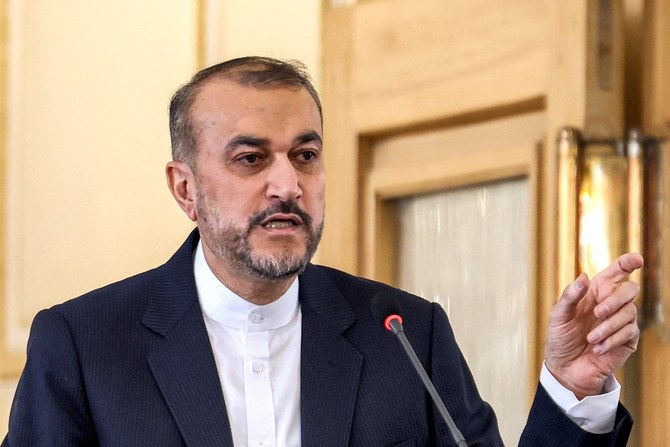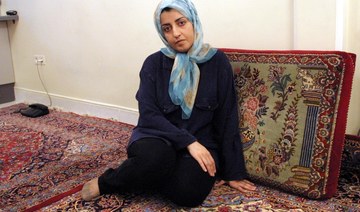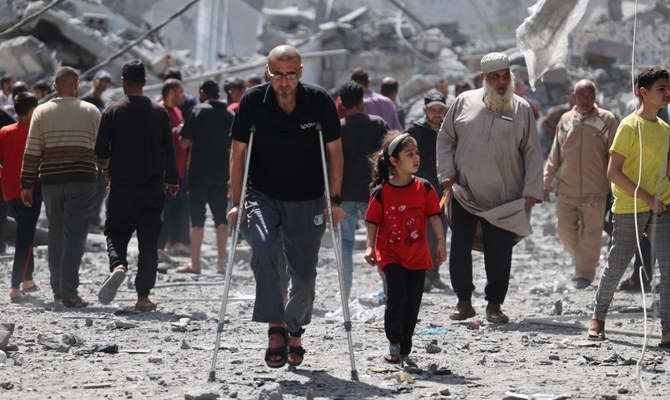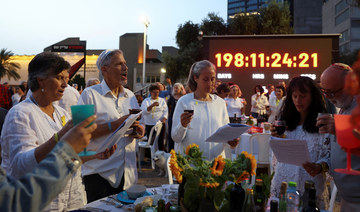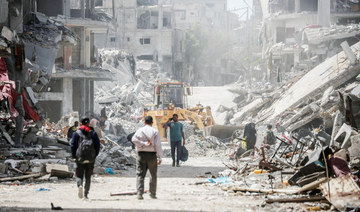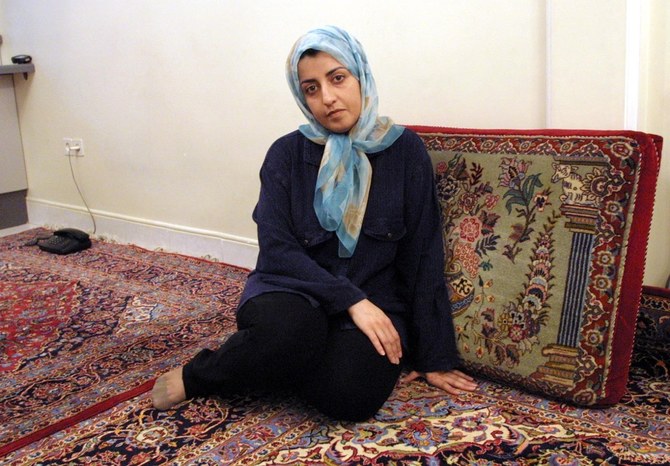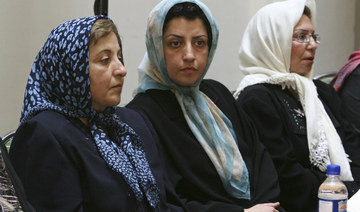BAGHDAD: A third protester has died in the second day of protests in Iraq, from wounds, medics have confirmed.
The 55-year-old man was wounded in Tuesday's demonstration in Baghdad's iconic Tahrir Square, the sources said.
Security forces used live fire and tear gas to disperse demonstrators in renewed protests in Baghdad on Wednesday, a day after at least two Iraqis were killed and 200 wounded in clashes over unemployment, corruption and poor public services.
At least eight protesters were wounded in the Zafaraniya district of southeast Baghdad when police and the army opened fire and launched tear gas canisters to disperse dozens of protesters, police sources said.
Iraqi President Barham Salih said peaceful protesting is a constitutional right, Iraqi state news agency reported on Tuesday.
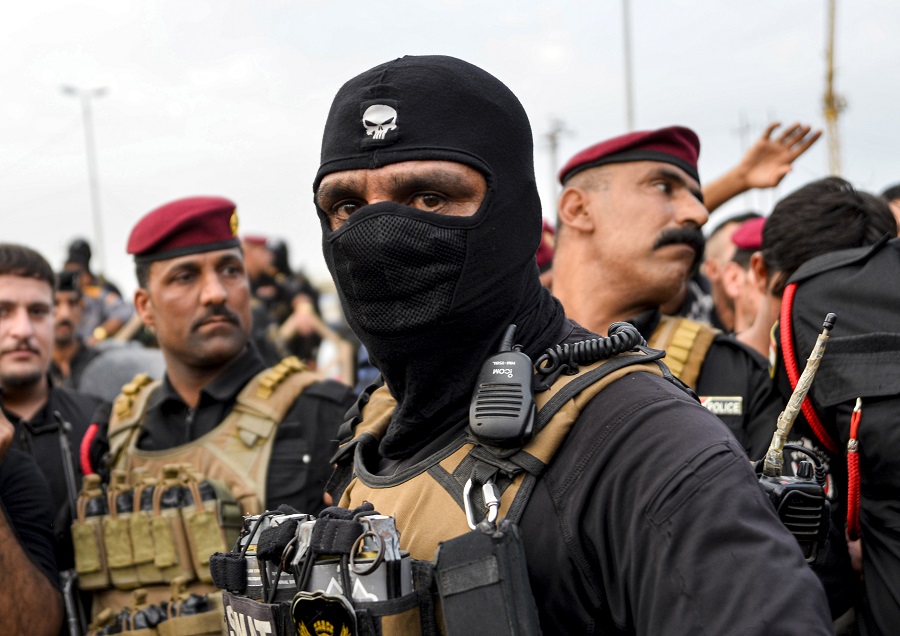
Security forces have been told civilians have the right to protest. (File/AFP)
Meanwhile, the Commander of Iraqi Federal Police Lieutenant General Raed Shaker Jawdat said police should be patient and protect the demonstrators.
The main demonstration in central Baghdad broke out on Tuesday, with other protests taking place in seven Shiite-dominated southern provinces. Police in the capital fired in the air as about 3,000 protesters tried to cross a bridge leading into the fortified Green Zone, chanting “People want to overthrow the regime.”
Security forces blocked roads and used stun grenades and water cannon to push back crowd, but protesters refused to leave. They set fire to the building used by an Iraqi army detachment, clashed with security forces and threw missiles at riot police and troops.
#WATCH: Smoke pours from a building set alight by Iraqi protesters near #Baghdad's Al-Jumhuriya Bridge during clashes with security forces that killed 2 people. (Video supplied to ARAB NEWS)
More details here: https://t.co/Rmq6rXRl0k pic.twitter.com/aaZNE49WjR
— Arab News (@arabnews) October 1, 2019
“Our youth is lost. There is no work, no services, no clear future, so why we should keep silent?” one protester, Mohammed, told Arab News.
“All the governments and political forces that came after 2003 stole our future, and now they are shooting at us just because we want to protest.”
There were also protests in the southern hub oil of Basra, where 15 people were arrested; friction in Dhi Qar province, where demonstrators tried to storm the provincial council; and unrest in Diwaniya, Najaf, Karbala, Babil and Maysan.
Firing by security forces near Tahrir Square in Baghdad forced the protesters into nearby alleyways. Mobile footage obtained by Arab News showed the demonstrators running along sideroads in central Baghdad, telling each other to take care as gunshots rang out in the background.
“The licensed place to demonstrate is Tahrir Square. Any demonstrator who moves just one meter out of it is violating the law, and will be forced back,” a senior police officer involved in securing the area told Arab News.
“The demonstrators burned a security checkpoint and attacked the security forces, and it is natural that our forces try to regain control of the situation.”
Calls for protests in Baghdad have intensified since last week, when Prime Minister Adel Abdul Mahdi fired the commander of the military counterterrorism squad, Lt. Gen. Abdulwahab Al-Saadi. Many Iraqis believe the decision was aimed at removing the leaders of the Iraqi army and official military institutions that led the fight against Daesh.
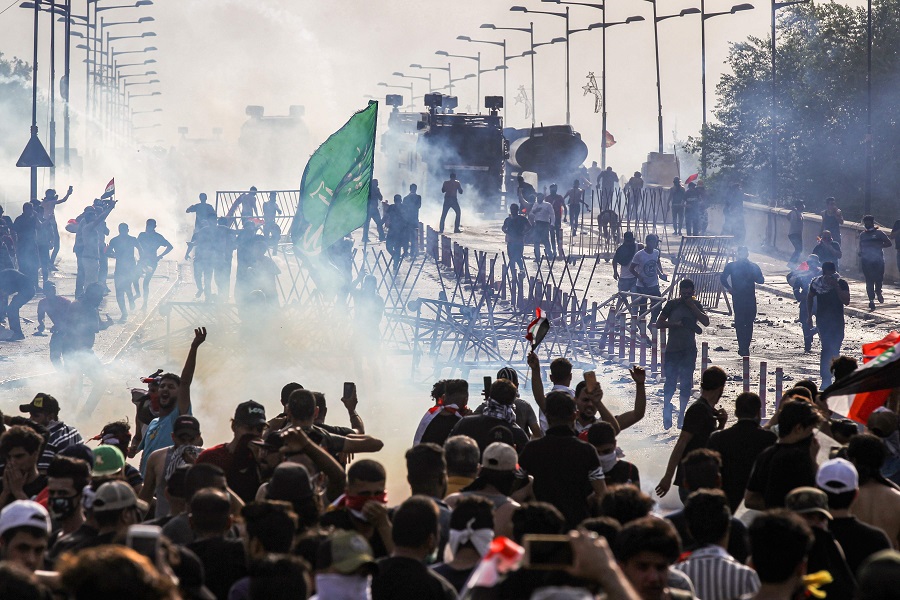
Security forces used water cannons and tear gas to disperse more than 1,000 protesters in central Baghdad on Tuesday. (File/AFP)
Observers and analysts said the dissatisfaction of most Iraqis was clear, but the publication of provocative videos suggesting a military coup had created tension between police and demonstrators. When security forces opened fire it was “the fastest reaction against demonstrators since 2003,” analyst Abdulwahid Tuama told Arab News. “This could have been avoided, but Abdul Mahdi appears to be provocative.”
An adviser to Abdul Mahdi claimed the US was behind the protests, to punish the prime minister for seeking economic ties with China. “Who promoted the demonstrations was the electronic army of the US embassy, through hundreds of web pages and mock accounts,” the adviser said. “Today’s demonstrations were a punishment for Abdul Mahdi, who dared to disobey America by going to China and opening the doors of investment to them.”
The adviser said US Secretary of State Mike Pompeo “warned Abdul Mahdi of the serious consequences he would face if he went to China. Revolutionizing the street to bring down the government is an attempt to punish him.”
Many Sunni politicians declared support for the protesters while most Shiite leaders remained silent. Howerful, the powerful Shiite cleric Muqtada Al-Sadr criticized “the excessive use of force,” and demanded an investigation.
The identity of the protest organizers is not clear, but video footage posted early on Tuesday showed Ahmed Al-Helou, an activist in Najaf, reciting what Iraqis call “Number One” — a reference to the first statement by insurgents after a military coup.
Helou, who described himself as a rebel, said in the video: “The revolution has begun ... enough demonstrations. They will not respond to your demands. Change will not happen at the hands of parties that have overthrown, killed, abandoned and stolen you.
“Previously, we did not have the alternative, but now we have … a government headed by Lt. Gen. Abdulwahab Al-Saadi was formed ... this is our last chance.”
Helou’s first video was followed by another one less than an hour later, in which he appeared next to the Iraqi flag with the national anthem playing in the background. He announces the composition of what he called the “National Salvation Government,” which included former ministers, judges, military leaders, academics and ambassadors, most of whom had lost their positions in the past two decades.
Shortly afterwards, most of those named on the list announced that they knew nothing about it and did not know who was responsible. Nevertheless, posters of Gen. Al-Saadi were distributed among protesters and pasted on minibuses in central Baghdad near Tahrir Square.
(With AFP and Reuters)










